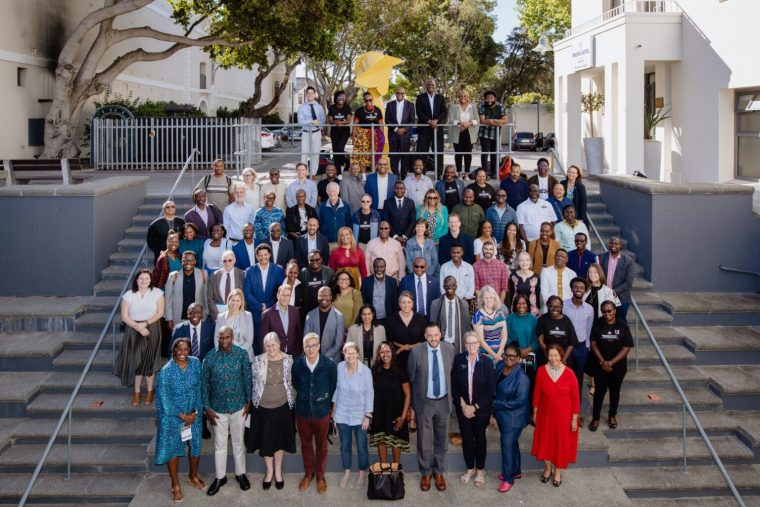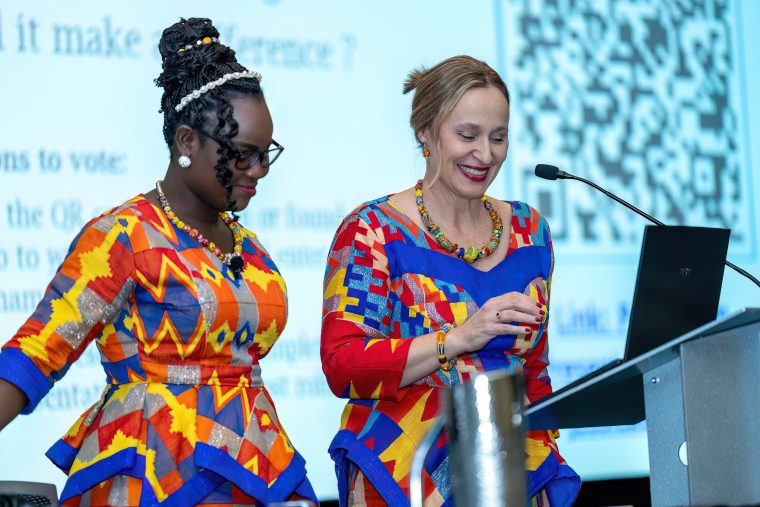Enhancing the skilled healthcare workforce in Africa
Health Employment
(HEMP)
The Health Employment Pillar builds the capacity and skills of primary health care workers to meet growing demand and to contribute to the extension of health systems that employ and retain this primary care workforce.
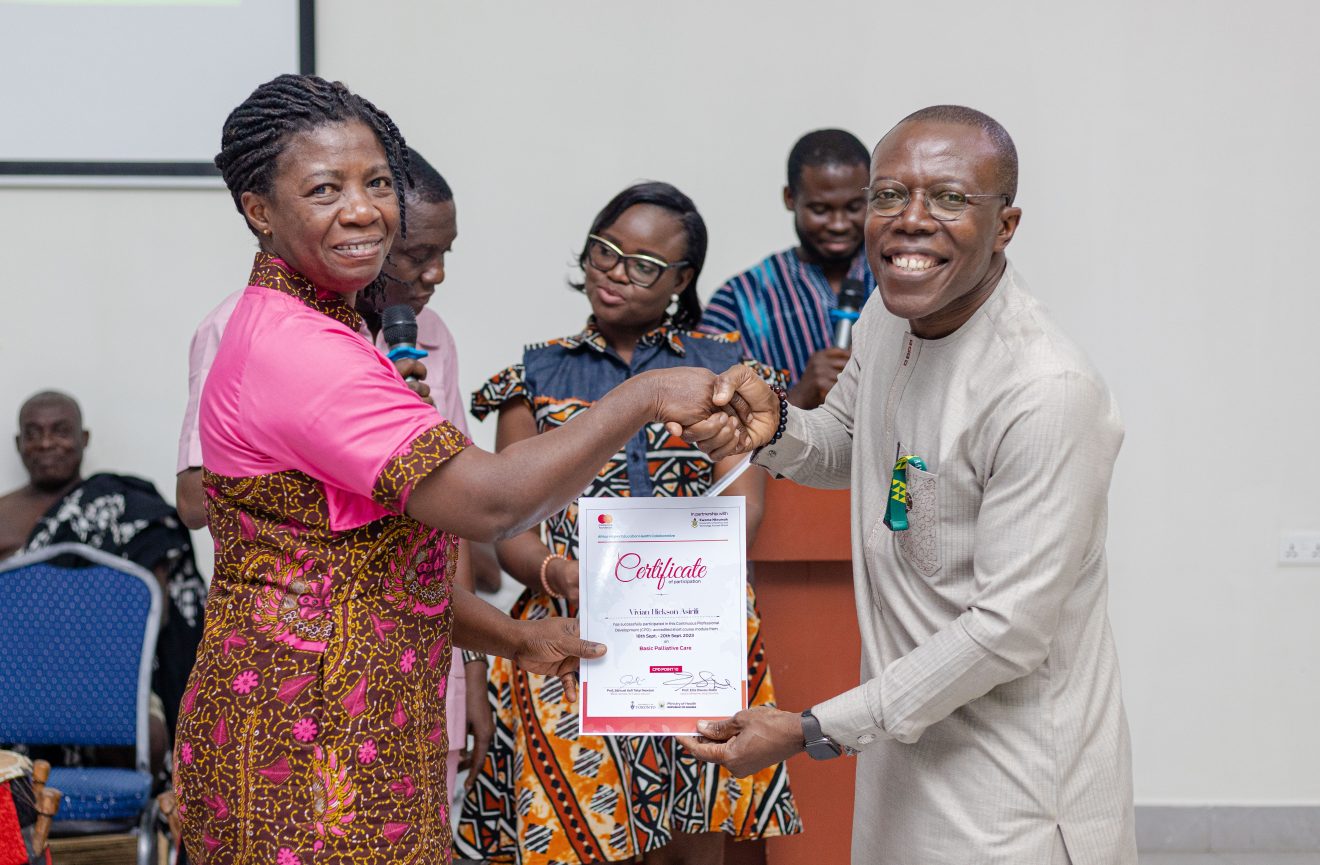

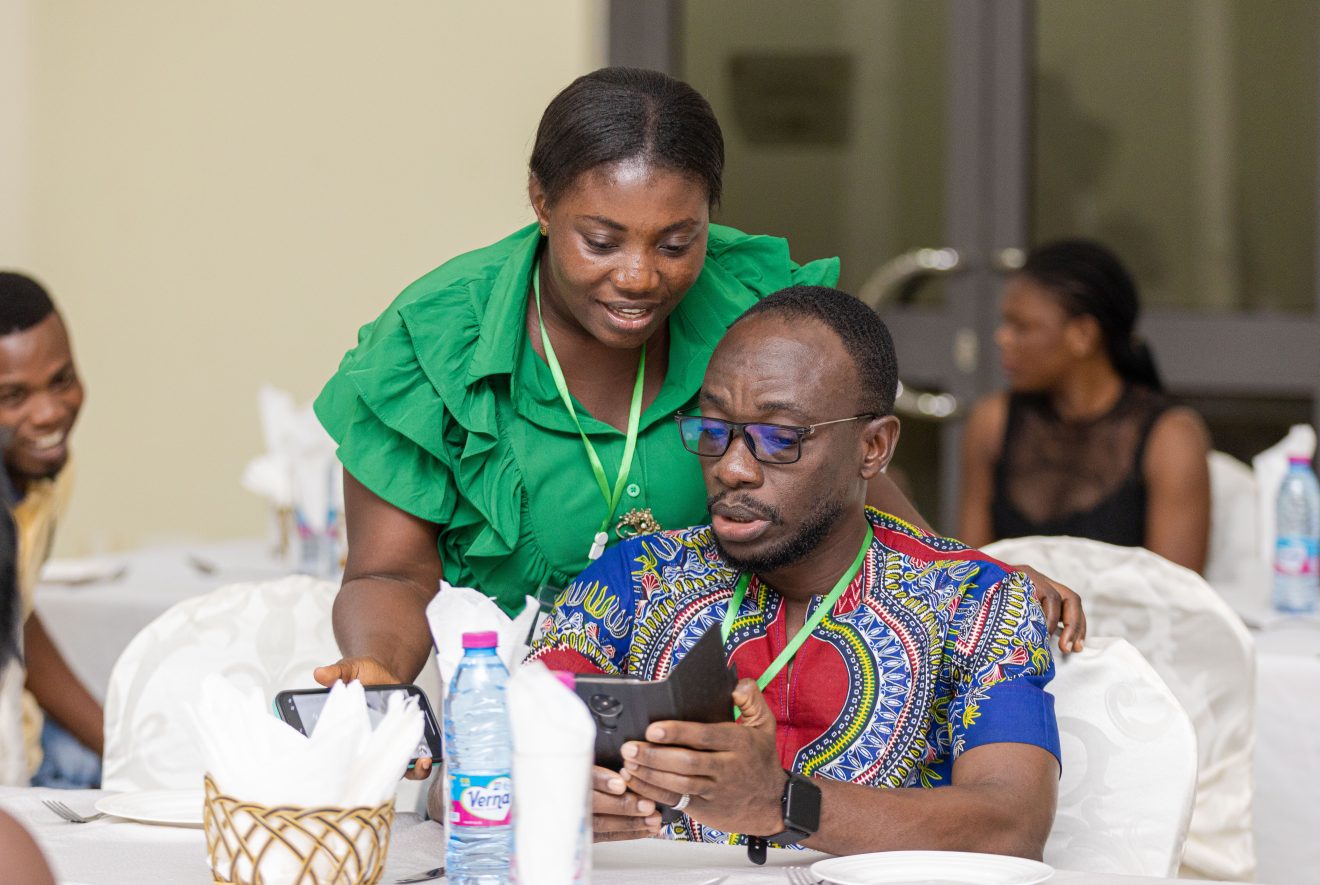
Impact of Employment on Africa
The Health Employment Pillar (HEMP) addresses the chronic mismatch between the demand for healthcare and the supply of a skilled health workforce in Africa, aiming to bridge this crucial gap.
In the HEMP pillar, our university partners initially identify critical skills gaps within national health systems, subsequently developing and delivering bespoke academic and professional training for primary healthcare workers and health professionals.
The inclusion of community health workers in these capacity-building programs remains a key strategy for supporting improved health delivery services at all levels. A focal point of HEMP is enhancing the leadership capacities of women in the health and public health sectors, thereby addressing gender inequities in Africa’s health human resources.
The diverse array of programs collaboratively created and implemented under HEMP plays a crucial role in cultivating an empowered and proficient health workforce, pivotal for responsive and efficient health systems.

The Power of Partnership

Our Goal
Expand capacity to train primary health care workers to meet growing demand.

How HEMP and Partners work together
Under the Health Employment Pillar, Health Collaborative Partners co-create medical residencies, and academic and professional programs, leveraging a ‘Train the Trainers’ (ToT) approach to significantly expand the number of skilled primary healthcare professionals.
Explore HEMP Activities
Programs
Skip scroller content
Certificate in Biomedical Engineering
Addis Ababa University
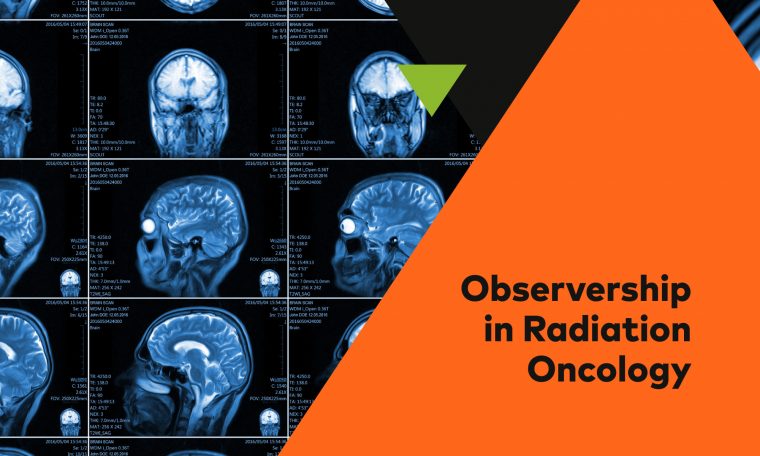
Observership in Radiation Oncology
Addis Ababa University, University of Toronto
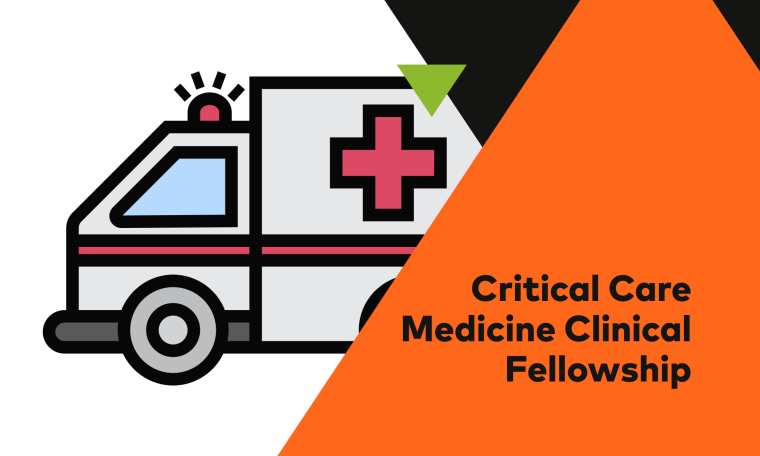
Critical Care Medicine Clinical Fellowship
Addis Ababa University, University of Toronto

Doctor of Public Health
Dalla Lana School of Public Health, University of Toronto

Fellowship in Child and Adolescent Psychiatry
Addis Ababa University, University of Toronto

Fellowship in Neurology
Addis Ababa University, University of Toronto
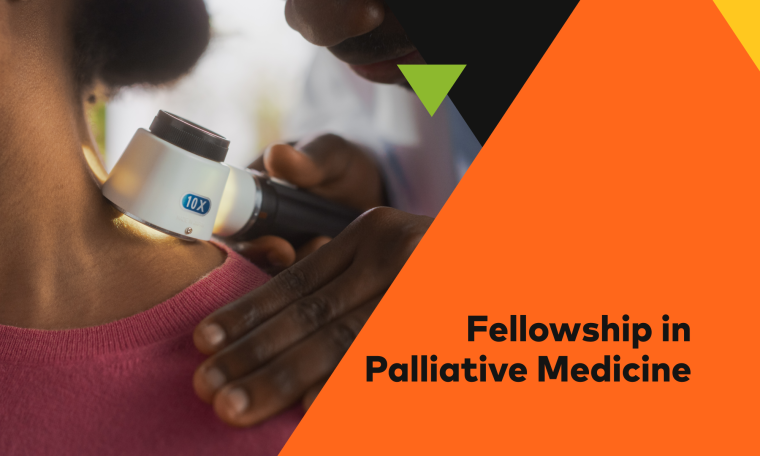
Fellowship in Palliative Medicine
Addis Ababa University, University of Toronto

Introduction to Community Emergency Care
Kwame Nkrumah University of Science and Technology, University of Toronto

Introduction to Emergency Preparedness and Response to Pandemics
Kwame Nkrumah University of Science and Technology, University of Toronto
Introduction to Healthcare Quality Improvement for Health Professionals
Kwame Nkrumah University of Science and Technology, University of Toronto
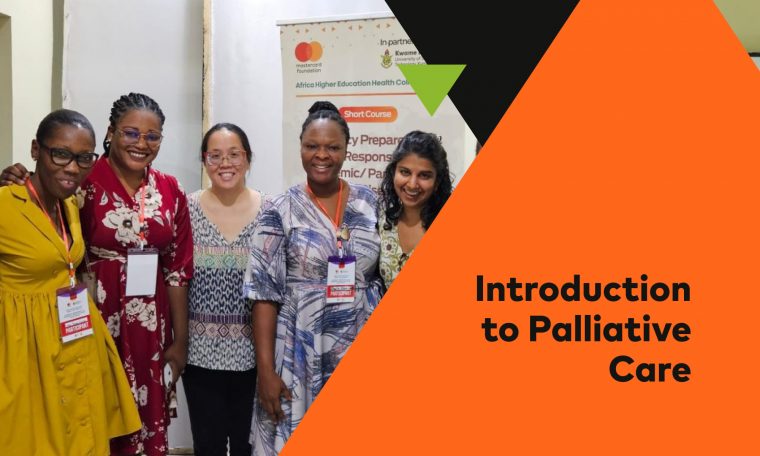
Introduction to Palliative Care
Kwame Nkrumah University of Science and Technology, University of Toronto

Introduction to Pre-Hospital Emergency Care
Kwame Nkrumah University of Science and Technology, University of Toronto

Junior Faculty Development Program
Dalla Lana School of Public Health, Moi University, University of Toronto

Masters in Emergency and Critical Care Nursing
Addis Ababa University, University of Toronto

Observership in Cardiology
Addis Ababa University, University of Toronto

Observership in Endocrinology
Addis Ababa University, University of Toronto

Observership in Gastroenterology
Addis Ababa University, University of Toronto
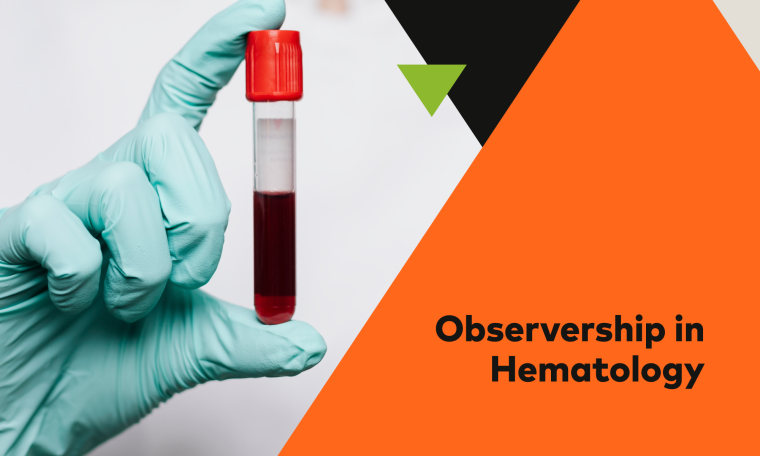
Observership in Hematology
Addis Ababa University, University of Toronto

Observership in Infectious Disease
Addis Ababa University, University of Toronto

Observership in Medical Imaging
Addis Ababa University, University of Toronto
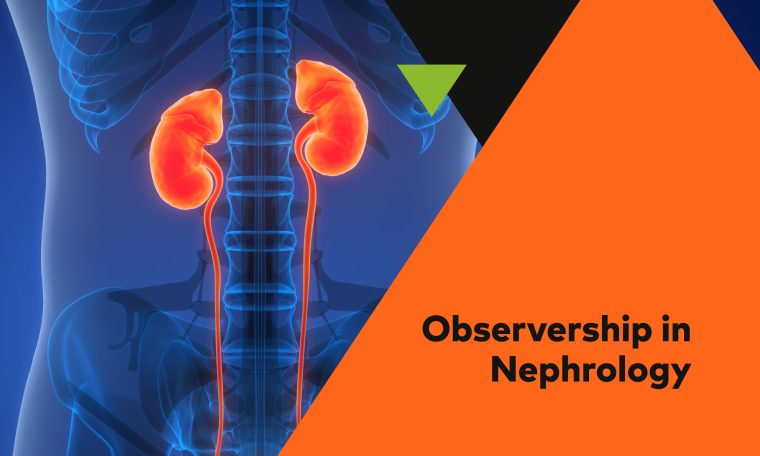
Observership in Nephrology
Addis Ababa University, University of Toronto

Women in Global Health Leadership Fellowship Program
Dalla Lana School of Public Health, Moi University, University of Cape Town, University of Toronto
BSc. in Biological Engineering
Ashesi University
Collaborative Research: Monitoring, Evaluation, Learning & Adaptation (MELA) @ African Institute for Mathematical Sciences (AIMS)
African Institute for Mathematical Sciences
Collaborative Research: Monitoring, Evaluation, Learning & Adaptation (MELA) @ African Leadership University
African Leadership University
Collaborative Research: Monitoring, Evaluation, Learning & Adaptation (MELA) @ Kwame Nkrumah University of Science and Technology
Kwame Nkrumah University of Science and Technology
Leaders in Health: DFCM [name not confirmed yet]
Addis Ababa University, University of Cape Town, University of Toronto
Leaders in Health: Global Nursing Program
Addis Ababa University, Kwame Nkrumah University of Science and Technology, University of Toronto
Leaders in Health: TBC
Addis Ababa University, University of Toronto
Leaders in Health: Women Global Health Leadership Fellowship
University of Cape Town, University of Toronto
Masters in Epidemiology of Communicable Diseases
African Institute for Mathematical Sciences, University of Toronto
MPH/ MSc. in Non-Communicable Diseases (NCDs)
Kwame Nkrumah University of Science and Technology, University of Toronto
PhD in Field Epidemiology & Biostatistics
Kwame Nkrumah University of Science and Technology, University of Toronto
PhD in Non-Communicable Diseases
Kwame Nkrumah University of Science and Technology, University of Toronto
Research & Innovation
Skip scroller content
Palliative Care Short Course Field Report

Needs Assessment Research Study
News & Events
Skip scroller content
Apply for KNUST’s CPD-Eligible Short Courses in Health Systems and Services Management
Applicants must meet the following requirements to qualify for the scholarship: Short Courses and Timelines 23rd – 27th February 2026: Emergency Preparedness and Response to Epidemic/Pandemic-Prone Diseases 10th – 14th February 2026: Community Emergency Care 24th – 27th February 2026: Palliative Care Module 1 23rd – 27th March 2026: Introduction to Healthcare Quality Improvement (IQI) […]

Graduate Scholarship Opportunities at the Kwame Nkrumah University of Science and Technology
Apply for graduate (MPh, MSc, MPhil, PhD) scholarships at the Kwame Nkrumah University of Science and Technology.
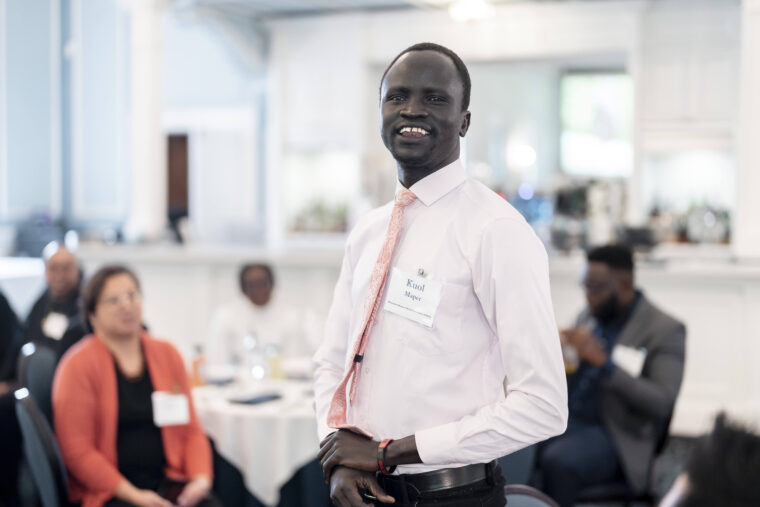
Displaced into Purpose: From Kakuma Refugee Camp to the World Health Organization
This is the story of a young person’s journey from Kakuma Refugee Camp to the WHO – showing how lived experience can drive innovation in global health My name is Kuol Maper Alier. I was born in South Sudan, but my early life was shaped by displacement, resilience, and a relentless pursuit of purpose. I […]

Internship Opportunities Open in Ghana
The Africa Health Collaborative Secretariat is seeking two interns based in Ghana to support the communications team. See details of the two roles below. Communications Associate Position Overview The Communications Associate will play a key role in driving Africa Health Collaborative’s visibility and storytelling efforts. This individual will research priority health topics, engage partners and program leads, […]
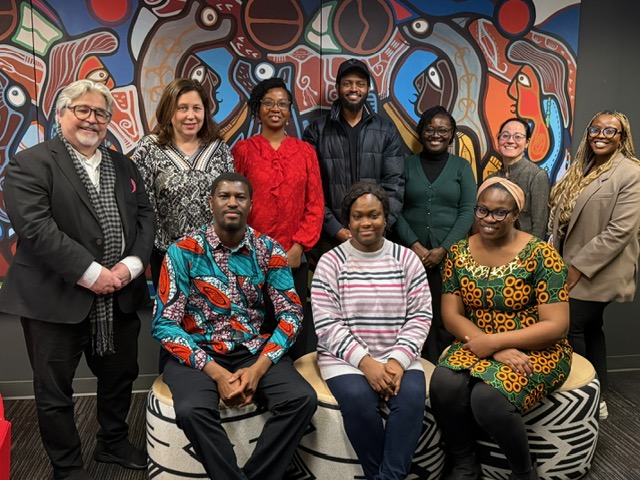
2026-2027 Doctor of Public Health Scholarships Open
We are pleased to announce the start of the 2026-2027 Mastercard Foundation graduate scholarship recruitment at the University of Toronto. This doctoral scholarship opportunity is open to recent alumni and graduating students at our Africa Health Collaborative partner universities. These graduate scholarships will be awarded to individuals who have demonstrated academic excellence in associated health-related disciplines […]

A Tribe Forged in Health: Leadership and Lifelong Bonds at WGHLF 2025
Leadership Coaching and Candid Conversations Kenyan leadership coach and governance expert, Dr. Susan Kinyeki, led a leadership coaching session that encouraged deep reflection on personal leadership journeys, identifying the ‘why ‘ and embracing the power of your voice. The highlight was a series of candid conversations with some of the most accomplished African female leaders in […]
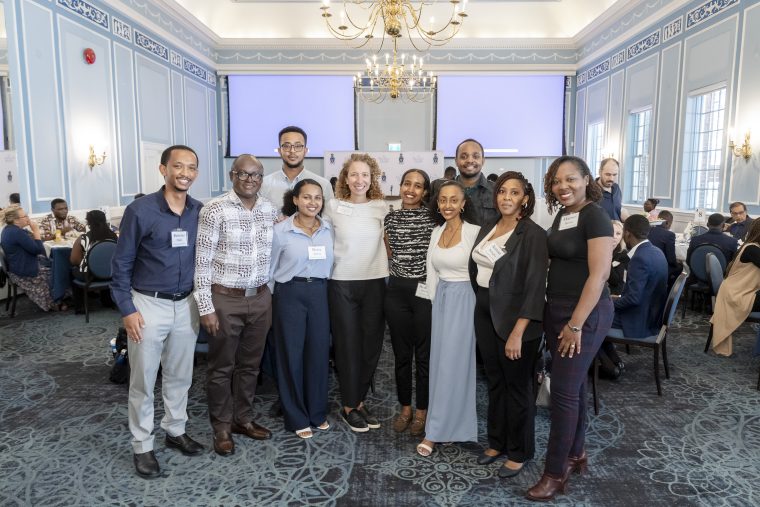
Apply for the Mastercard Foundation Doctor of Public Health Scholarship
How to Apply: Step OneProspective applicants must first consult the admission requirements for the Doctor of Public Health (DrPH) program of study. The link above will guide you in exploring this program.If you meet the academic requirements of this program, please follow through to step two. Step TwoReview the recording of the scholarship information session […]



Want to learn more about the HEMP pillar?

Regional Lead (Health Employment), International Research Officer
